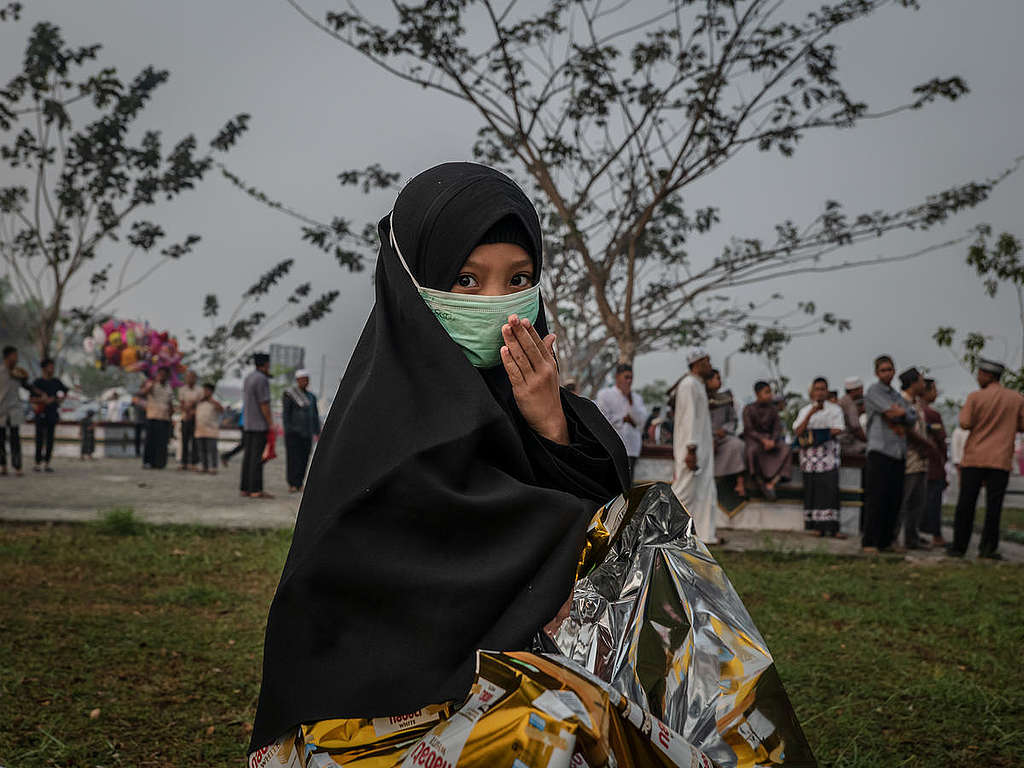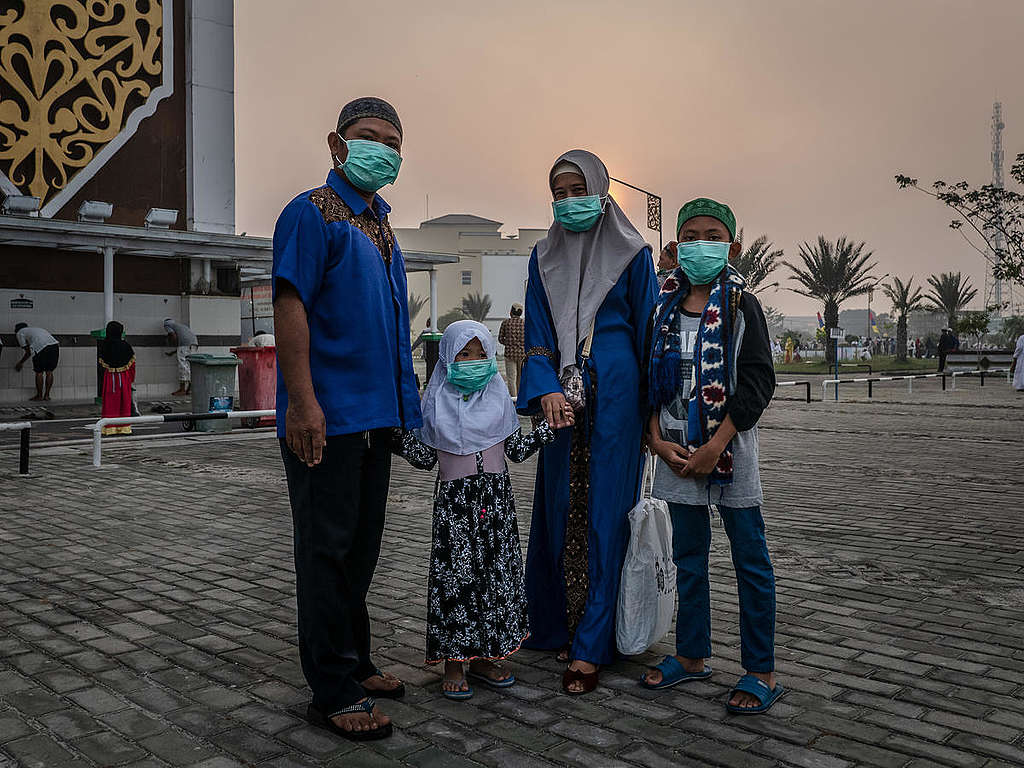An Eid’l Fitr blog by Atty. Hasminah Dimaporo Paudac
Fa inna ma’al ‘usri Yusra (Verily, along with every hardship is relief).
– Surah Inshirah 5-6
With the pandemic claiming thousands of lives and continuing to claim more on a daily basis, I began to wonder what we should be learning from this situation. I was in complete isolation for almost 40 days, away from my family and in a different city, when the virus first started to spread in the Philippines just as I was arriving from a work trip in New York City. What supposedly was just two weeks of quarantine turned out to be one of the challenging moments that tested my sanity.
I am a practicing litigation lawyer, a female in a male-dominated profession, and a Muslim in a country that still embraces bigotry and confuses public service with vindictive politics, inclusivity with selective justice, and protecting citizens with silencing them away.
Those who know me would likely say that I am among the least expected to succumb to depression and anxiety, or to carry a frown longer than an hour. As a lawyer, I eat troubles for breakfast and go to bed with all sorts of problems fed in my system— enduring them like an unscathed soldier. But the current COVID-19 crisis changed the game, especially for a Muslim like me who just finished a month-long fasting while juggling work and chores and still coping with having just emerged from complete isolation.

Observing Ramadhan in the face of pandemic
I was 4 years old when I started fasting. Initially, I was just following what I saw was being practiced in our household. As a child, I looked forward to the month of Ramadhan because it painted a good picture of oneness and happiness in our home. For a month, our family wakes up at dawn to fill our stomachs enough to withstand the day and, after sunset, we eat together with what I considered a “happy meal” — some really good dishes were only prepared during Ramadhan. We also conduct tarawih (nightly prayers) together with my relatives and neighbors and, again, eat delectable food thereafter.
All these somewhat changed and the festivity was tempered due to the pandemic. Among others, food expectations changed as ingredients for food preparations were limited and congregational prayers in the mosque were not performed due to closure and observance of mandated physical distancing.
Celebrating Eid’l Fitr
To non-Muslims, this day might just be one of the regular holidays, a time off from school or work and an extra day to spend for leisure or extended vacation had there been no pandemic. But to Muslims, Eid’l Fitr is one of the most important days in our religion.
Literally, Eid’l Fitr means the “feast of breaking the fast.” It is celebrated after a month-long abstinence not only from food and water, but also from worldly pleasures and distractions that tend to veer us away from our faith and the really important things in life. For me, the month-long fasting is an act of ibadah (worship)—a great opportunity to get closer to Allah (swt) and earn His pleasure through increasing prayers and remembrance of Him; a chance to renew one’s self by breaking bad habits and practicing patience; an experience of empathy towards the plight of the needy—those who experience hunger and thirst the most; a sense of compassion through giving charity or zakat; and, above all, a collective effort to unite and bind the ummah (Muslim community) to spread peace and goodness through words and deeds.
Reflections
Islam has been handling pandemics for more than 1,400 years and an honest study of the traditions of the holy prophet Muhammad (peace and blessings of Allah be upon him) demonstrates that infection control mechanisms, which employ both faith and practical measures, are inherent in Islamic practices.
| On travel bans and quarantines: “If you hear of an outbreak of plague in a land, do not enter it; and if the plague breaks out in a place while you are in it, do not leave that place.” (Sahih al-Bukhari) Travel bans and quarantine were instructed to Muslims during the time of prophet Muhammad (pbuh) to mitigate and control the spread of the plague. |
| On physical distancing: “It is reported that a leprous man once wished to pledge his allegiance to him, an act that would require him to touch or hold prophet Muhammad’s (pbuh) hand. Keeping his distance, prophet Muhammad (pbuh) kindly sent word to him that his pledge had already been accepted and that he should return home. (Sunan Ibn Majah) |
| On isolation: “Do not place a sick patient with a healthy person.” This teaching was extended to animals as well; “The cattle suffering from a disease should not be mixed with healthy cattle.” (Sahih al-Bukhari) Muslims in the time of prophet Muhammad (pbuh) and those that came after him have observed physical distancing and self-isolation as if they were religious injuction. |
| On hygiene (the practice of washing the hands is part of a Muslim’s ablution): “Truly, God loves those who turn unto Him in repentance and loves those who purify themselves.” (Qur’an 2:222) “The key to the prayer is cleanliness, its beginning is takbir (saying Allahu Akbar) and its ending is Salam (salutation).” (Abu Dawud). “Cleanliness is half of faith (emaan).” (Sahih Muslim) Muslims see cleanliness as part of faith. This is why thorough body cleansing is observed before any worship (ibadah) is done. |
| On medical treatment and optimism to find a cure for any disease: Prophet Muhammad (pbuh) also clarified that seeking medical assistance, coupled with divine intervention, was the key to successful treatment; “Every disease has a cure. If a cure is applied to the disease, it is relieved by the permission of Allah the Almighty.” (Sahih Muslim) Muslims rely on Allah (swt) and, at the same time, have always been practical when it comes to Medical, Science, and other fields, like Philosophy. This is the teaching of prophet Muhammad (pbuh), passed down from generation to generation. Islam encourages the ummah (Muslim community) to not limit the learning in Theology. |

It has been more than 40 days now since my complete isolation. I am reunited with my family, but my mind still races with lingering thoughts of a bleak future, as this pandemic has more clearly exposed the cracks in the systems of our society that keep us from building a just, sustainable, and progressive future. However, I find comfort in seeing my family and loved ones healthy and possibilities for the environment recuperating, an advocacy I hold dear. My month-long isolation and fasting taught me lessons in resilience and persistence. Indeed, with every hardship, there is relief.
To all Muslims and non-Muslims alike, may the true essence of the observance of Ramadhan and Eid’l Fitr—patience, empathy, and unity—usher in the changes we all endeavor not only for ourselves and families, but equally for our country as we sail through this pandemic. May we realize that our previous habits and systems in place are no longer viable and we need to shift our mindset and behavior towards creating a #BetterNormal.
Eid Mubarak, everyone!
About the author: Hasminah Dimaporo Paudac is a lawyer by profession, an environmental advocate and development worker by vocation, and a frustrated artist by inclination.


Discussion
Great piece. A profound insight on the arcane ways of Din ul Islam as it is didactic. Pls write more Panyera to educate those uninitiated non-Muslims and break the barriers of bigotry and bias which stymie our dream for a united and peaceful bangsafilipino...